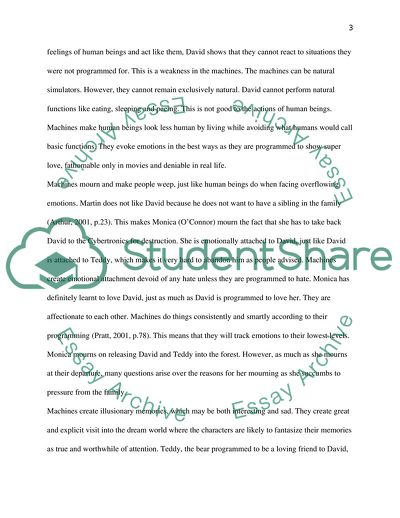Cite this document
(How Spielberg Explores the Relationship Between Memory, Mourning, and Coursework, n.d.)
How Spielberg Explores the Relationship Between Memory, Mourning, and Coursework. https://studentshare.org/visual-arts-film-studies/1868381-analyse-how-spielberg-explores-the-relationship-between-memory-mourning-and-machines-in-ai-artificial-intelligence-and-minority-report
How Spielberg Explores the Relationship Between Memory, Mourning, and Coursework. https://studentshare.org/visual-arts-film-studies/1868381-analyse-how-spielberg-explores-the-relationship-between-memory-mourning-and-machines-in-ai-artificial-intelligence-and-minority-report
(How Spielberg Explores the Relationship Between Memory, Mourning, and Coursework)
How Spielberg Explores the Relationship Between Memory, Mourning, and Coursework. https://studentshare.org/visual-arts-film-studies/1868381-analyse-how-spielberg-explores-the-relationship-between-memory-mourning-and-machines-in-ai-artificial-intelligence-and-minority-report.
How Spielberg Explores the Relationship Between Memory, Mourning, and Coursework. https://studentshare.org/visual-arts-film-studies/1868381-analyse-how-spielberg-explores-the-relationship-between-memory-mourning-and-machines-in-ai-artificial-intelligence-and-minority-report.
“How Spielberg Explores the Relationship Between Memory, Mourning, and Coursework”. https://studentshare.org/visual-arts-film-studies/1868381-analyse-how-spielberg-explores-the-relationship-between-memory-mourning-and-machines-in-ai-artificial-intelligence-and-minority-report.


